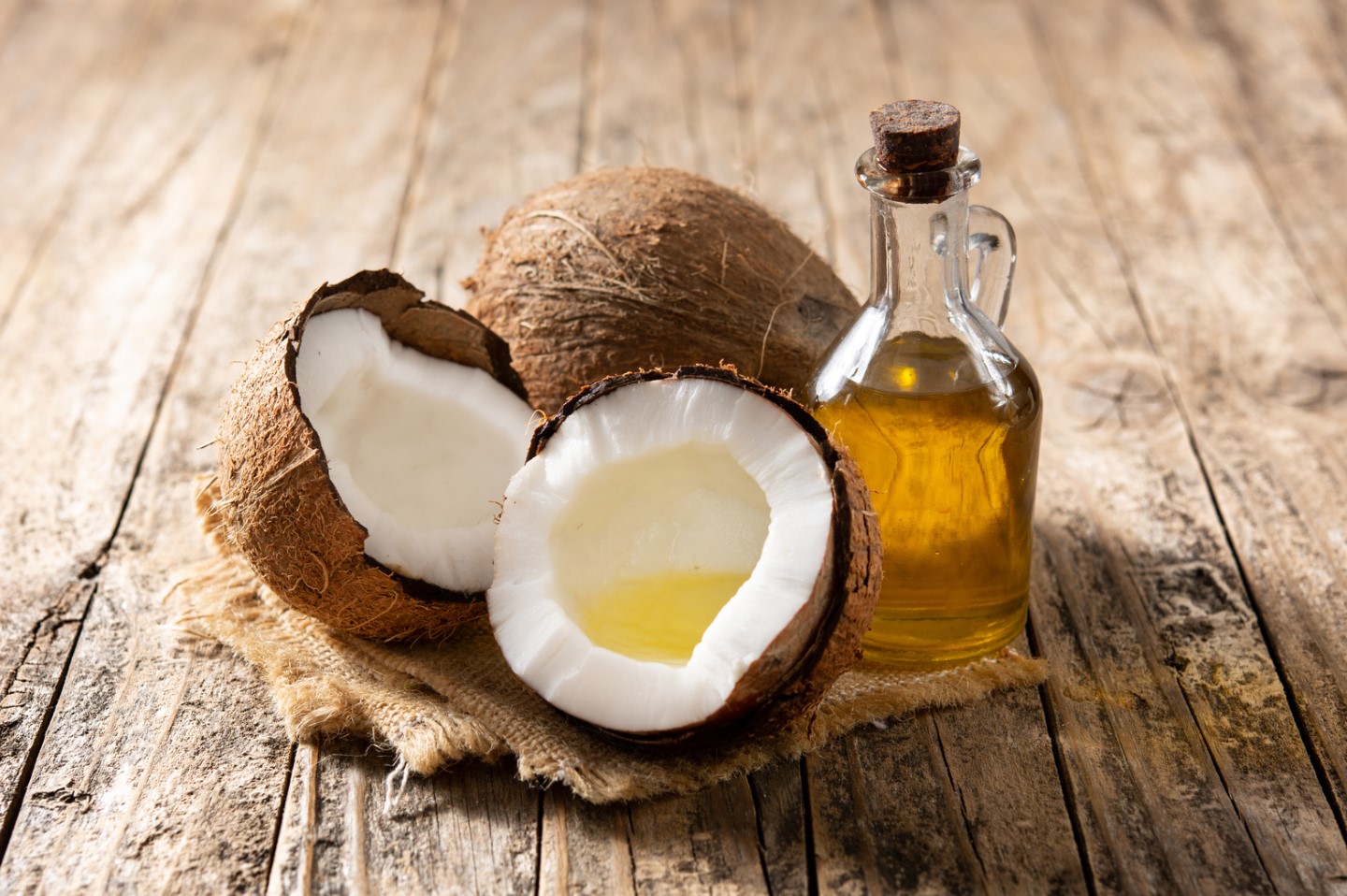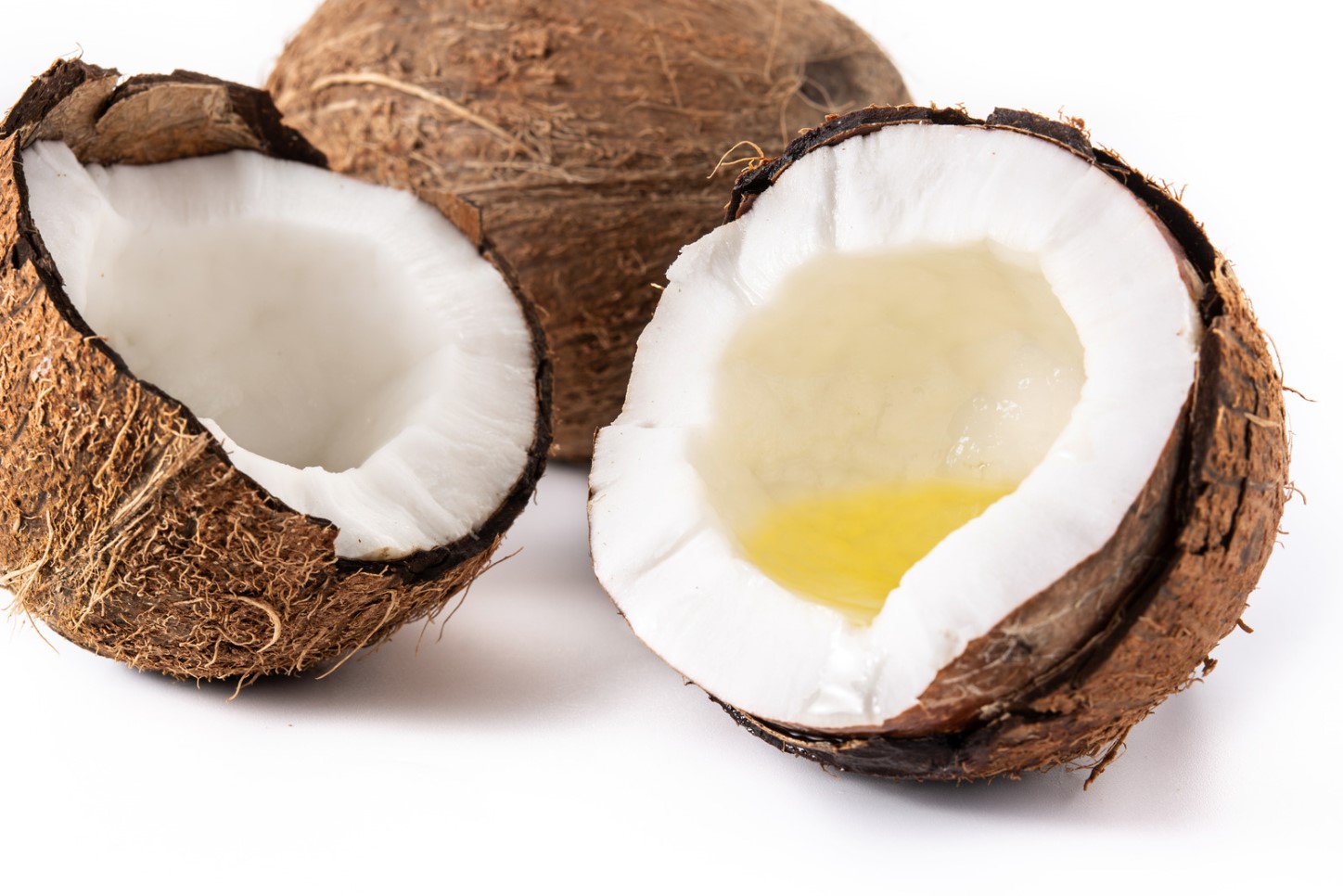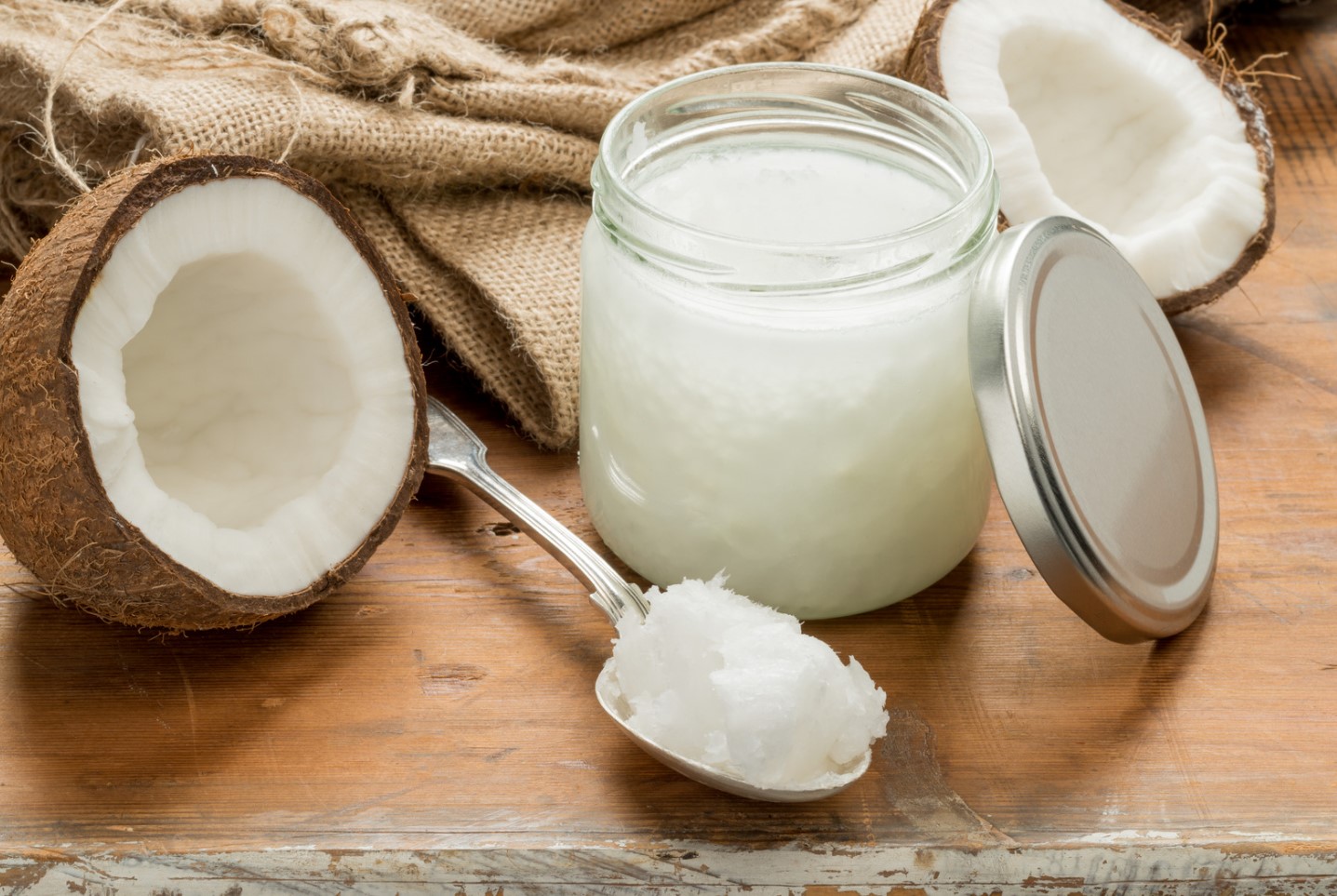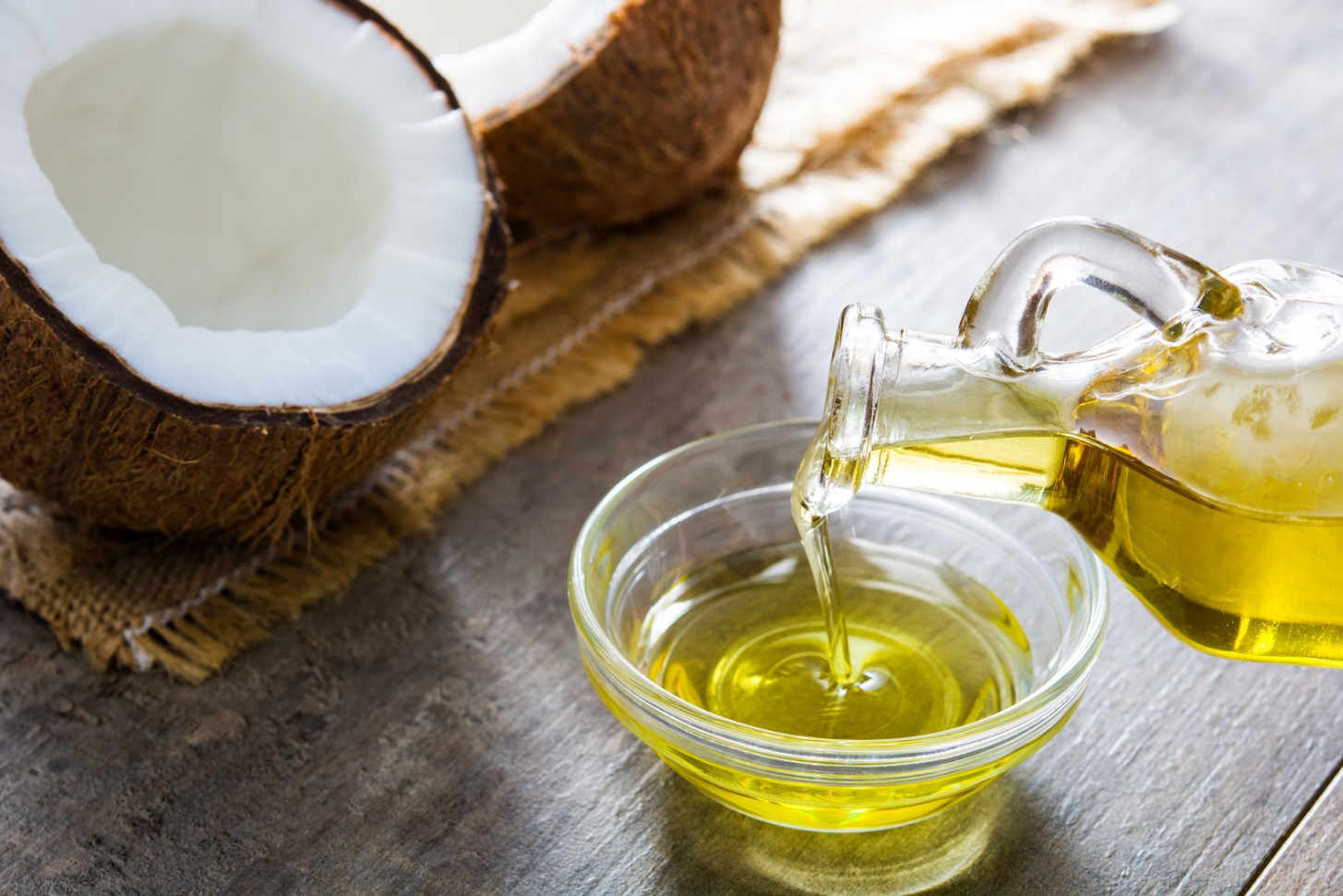Introduction To Coconut Oil And İts Uses
Coconut oil has become increasingly popular over the years, especially in the health and wellness industry. This versatile oil is not only delicious but also offers numerous benefits. In this blog post, we’ll dive into the world of coconut oil and explore its many uses.
First of all, coconut oil is derived from the meat of mature coconuts. It’s packed with healthy fats, including medium-chain triglycerides (MCTs), which can boost energy levels and even aid in weight loss. This oil can be used in a variety of ways, such as for cooking and baking, as a natural skincare product, and even for oil pulling for dental health.
- When used as a cooking oil, coconut oil is a healthier alternative to other oils such as vegetable or canola oil. It has a high smoke point, making it ideal for frying and sautéing.
- For skin care, coconut oil acts as a natural moisturizer and can help reduce the appearance of fine lines and wrinkles.
- Oil pulling involves swishing coconut oil around in your mouth for a few minutes to help remove bacteria and promote oral health.
Aside from its practical uses, coconut oil has a number of potential health benefits when consumed. Some studies have shown that coconut oil may help reduce inflammation, boost brain function, and even aid in the prevention of heart disease.
| Benefit | Description |
|---|---|
| Improved digestion | Coconut oil can aid in the digestion and absorption of food due to its high levels of lauric acid. |
| Mental clarity and focus | The MCTs found in coconut oil are quickly metabolized in the liver and converted into ketones, which can provide an alternative source of fuel for the brain and enhance cognitive function. |
| Natural sunscreen | Coconut oil has a natural SPF of around 4-5 and can be an effective, all-natural option for sun protection. |
Overall, coconut oil is a versatile and beneficial addition to any diet and daily routine. Whether you use it for cooking, skincare, or health benefits, this oil is a must-try. Stay tuned for our next post, where we’ll discuss how coconut oil boosts metabolism and aids in weight loss.

How Coconut Oil Boosts Metabolism And Aids Weight Loss
Coconut oil is a versatile substance that has a plethora of uses for improving our health and overall well-being. One of the most popular benefits of coconut oil is its ability to boost metabolism and aid in weight loss.
Research has shown that consuming coconut oil regularly can increase metabolism, leading to more calories burned and ultimately weight loss. This is because coconut oil contains medium chain triglycerides (MCTs), which are easily converted to energy in the body rather than being stored as fat.
In addition to its metabolism-boosting properties, coconut oil also helps to suppress appetite, making it easier to stick to a calorie-controlled diet. Studies have shown that people who consume MCTs like those found in coconut oil eat fewer calories overall, leading to weight loss.
- Coconut oil can be easily incorporated into your diet by using it for cooking or substituting it for other oils or fats.
- It’s important to note, however, that while coconut oil can aid in weight loss, it should still be consumed in moderation as it is high in calories and saturated fats.
- Consult with a healthcare professional before making any significant changes to your diet.
Overall, coconut oil is a natural and effective way to boost metabolism and aid in weight loss. By incorporating it into your diet and maintaining a healthy lifestyle, you can reap the many benefits that coconut oil has to offer.
The Antibacterial And Antimicrobial Properties Of Coconut Oil
Coconut oil is not only an excellent source of healthy fats for cooking and baking, but it also possesses many antibacterial and antimicrobial properties. These natural properties of coconut oil can help to boost the immune system and fight off harmful bacteria and viruses in the body. Plus, coconut oil is a safe and effective natural remedy that can be used in a variety of situations to provide relief and promote healing.
One of the primary ways that coconut oil displays its antibacterial and antimicrobial properties is through its high levels of lauric acid. This powerful fatty acid is found in abundance in coconut oil, and it has been shown to have strong antibacterial, antiviral, and antifungal effects on the body. Additionally, coconut oil contains caprylic acid and capric acid, which also exhibit strong antimicrobial and antibacterial properties.
- Ingesting coconut oil can help to improve gut health and fight off harmful bacteria in the digestive system
- Applying coconut oil topically can help to prevent and treat skin infections, including acne and fungal infections
- Using coconut oil as a natural mouthwash can help to kill harmful bacteria in the mouth and improve oral health
One of the most promising applications of coconut oil’s antibacterial properties is in the treatment of antibiotic-resistant infections. There is evidence to suggest that coconut oil may be effective against a variety of harmful bacteria, including Staphylococcus aureus, which is notoriously difficult to treat with traditional antibiotics.
Overall, the antibacterial and antimicrobial properties of coconut oil make it a valuable addition to any natural health toolkit. Whether you’re fighting off a cold, treating a skin infection, or improving your oral health, coconut oil can offer safe and effective relief without any of the harmful side effects associated with conventional treatments. So why not give coconut oil a try and see how it can improve your health and wellbeing?

Benefits Of Coconut Oil İn İmproving Digestion
Coconut oil is an edible oil extracted from the kernel or meat of mature coconuts. It has been used in traditional medicine for centuries and has gained popularity in recent years due to its numerous health benefits. One of the many benefits of coconut oil is its ability to improve digestion.
Coconut oil contains medium-chain fatty acids (MCFAs), including lauric acid, which studies have shown to have antimicrobial properties. These antimicrobial properties can help kill harmful bacteria in the gut that can cause digestive issues such as bloating, constipation, and diarrhea. Coconut oil can also help improve the absorption of essential nutrients, such as vitamins and minerals, which are important for maintaining a healthy digestive system.
- In addition, coconut oil can promote the growth of good bacteria in the gut, which can further improve digestive function. The MCFAs in coconut oil can also help reduce inflammation in the gut, which is common in people with digestive disorders such as irritable bowel syndrome (IBS) and Crohn’s disease.
- Coconut oil can also help soothe an irritated gut lining, which can reduce symptoms of acid reflux and ulcers.
| Benefits of Coconut oil in improving digestion | |
|---|---|
| Antimicrobial activity | Kills harmful bacteria in the gut |
| Improved nutrient absorption | Helps absorb essential nutrients from the food |
| Promote growth of good bacteria | Happens due to medium-chain fatty acids (MCFAs) in coconut oil |
| Reduces inflammation | Common in people with digestive disorders such as irritable bowel syndrome (IBS) and Crohn’s disease. |
| Soothe an irritated gut lining | Reduce symptoms of acid reflux and ulcers |
In conclusion, coconut oil can be a great addition to your diet if you are looking to improve your digestive health. Its antimicrobial properties, ability to promote good bacteria growth, and reduction of inflammation make it a natural treatment for digestive disorders. Not only does it benefit your digestive system, but it also has numerous other health benefits that make it a versatile and useful addition to your daily routine.

Coconut Oil’s Role İn Reducing İnflammation And Joint Pain
Coconut oil has become increasingly popular among people looking for natural remedies for various health issues. One of the major benefits of coconut oil is its ability to reduce inflammation and alleviate joint pain. Inflammation occurs naturally in the body as a response to injury or infection, but chronic inflammation can lead to various health problems, including joint pain. Coconut oil contains certain compounds, such as lauric acid and caprylic acid, that have anti-inflammatory properties and can help reduce inflammation in the body.
Studies have shown that coconut oil has the potential to reduce joint inflammation and relieve pain caused by conditions such as arthritis. It can also aid in reducing muscle soreness after exercise. Consuming coconut oil regularly can help control inflammation in the body and improve joint health.
- Coconut oil contains medium-chain triglycerides (MCTs) that can help reduce inflammation in the body. These MCTs are easily absorbed by the body, and they can be metabolized quickly to provide energy to the cells.
- The fatty acids in coconut oil, such as lauric acid and caprylic acid, can help reduce the production of pro-inflammatory cytokines and chemokines, which are responsible for triggering inflammation in the body.
- Coconut oil also contains antioxidants that can help neutralize free radicals and reduce oxidative stress, which can contribute to inflammation and joint pain.
In addition to consuming coconut oil, applying it topically can also help reduce inflammation and pain in specific areas. You can massage coconut oil onto painful joints or muscles to help alleviate discomfort. Adding a few drops of essential oils, such as peppermint or eucalyptus, to coconut oil can also enhance its pain-relieving properties.
| How to use coconut oil for reducing inflammation and joint pain: |
|---|
| 1. Consume 1-2 tablespoons of coconut oil daily. You can add it to smoothies, coffee or tea, or use it in cooking and baking. |
| 2. Massage coconut oil onto painful joints or muscles to help alleviate discomfort. |
| 3. Add a few drops of essential oils, such as peppermint or eucalyptus, to coconut oil before applying it topically for enhanced pain-relieving properties. |
Coconut oil’s anti-inflammatory and pain-relieving properties make it a promising remedy for people suffering from joint pain and inflammation. However, like with any natural remedy, it’s important to consult with your healthcare provider before using coconut oil for medicinal purposes, especially if you are already taking medication or have a pre-existing medical condition.
How Coconut Oil Can İmprove Hair Health And Promote Hair Growth
Coconut oil has been touted as a natural remedy for a wide variety of health concerns, from boosting metabolism to reducing inflammation. One area where coconut oil may be particularly effective is in promoting hair health and hair growth. While there is no miracle cure for hair loss or thinning, coconut oil can have a positive impact on overall hair health when used as part of a healthy hair care routine.
One of the key benefits of coconut oil for hair is its ability to moisturize and nourish. Coconut oil is rich in fatty acids, which can penetrate the hair shaft and provide deep hydration. This can help to prevent breakage and split ends, and improve the overall texture and appearance of hair.
In addition to its moisturizing properties, coconut oil may also have antibacterial and antifungal properties that can help to reduce dandruff and other scalp conditions. One study found that coconut oil was more effective at treating dandruff than a commonly used anti-dandruff shampoo.
- To use coconut oil for hair, start by selecting a high-quality, unrefined oil.
- Apply a small amount of oil to your hair, focusing on the ends and any problem areas.
- For best results, leave the oil on overnight and rinse with a gentle shampoo in the morning.
Repeat this process once or twice a week, depending on your hair type and personal preference. Over time, you may notice that your hair feels softer and smoother, with fewer tangles and less breakage.
While coconut oil can be a valuable addition to your hair care routine, it is important to remember that no single product can work miracles. Hair health is influenced by a wide variety of factors, from genetics to diet to overall health and lifestyle habits.
Nevertheless, incorporating coconut oil into your hair care routine can be a simple and effective way to nourish and promote healthy hair growth. Whether you are dealing with hair loss, thinning, or simply want to improve the overall health and appearance of your hair, coconut oil may be an excellent natural option to consider.

Benefits Of Coconut Oil İn Treating Skin Conditions
Coconut oil is an amazing natural remedy that has been used to treat various skin conditions for centuries. The oil is rich in fatty acids such as lauric, caprylic, and capric acid, which have been found to have antimicrobial and anti-inflammatory properties. These properties make coconut oil an effective treatment for numerous skin conditions, including eczema, psoriasis, and acne.
When it comes to eczema, coconut oil can help to soothe the skin and alleviate itching. The oil can also help to reduce inflammation and prevent infections. To use coconut oil for eczema, simply apply a small amount of oil to the affected area and massage it gently into the skin.
- For psoriasis, coconut oil can help to reduce inflammation and soothe the skin. It can also help to prevent infections and keep the skin moisturized. To use coconut oil for psoriasis, apply a small amount of oil to the affected area and massage it into the skin.
- Coconut oil is also an effective treatment for acne. The oil’s antimicrobial properties can help to kill bacteria that cause acne, while its anti-inflammatory properties can help to reduce redness and inflammation. To use coconut oil for acne, simply apply a small amount of oil to the affected area and massage it into the skin.
In addition to these skin conditions, coconut oil can also be used to treat other common skin problems such as dry skin, sunburns, and stretch marks. The oil’s moisturizing properties can help to keep the skin hydrated and prevent dryness, while its healing properties can help to promote skin regeneration and repair.
| Benefits of Coconut Oil in Treating Skin Conditions |
|---|
| ● Soothes eczema |
| ● Reduces inflammation of psoriasis |
| ● Kills bacteria causing acne |
| ● Moisturizes dry skin |
| ● Promotes skin regeneration |
| ● Helps in healing sunburns and stretch marks |
Coconut oil is an amazing natural remedy that can help to treat a wide range of skin conditions. Whether you’re dealing with eczema, psoriasis, acne, or other common skin problems, coconut oil can help to soothe the skin, reduce inflammation, kill bacteria, and promote skin regeneration. With all these benefits, it’s no wonder why coconut oil should be a staple in your daily routine.

Coconut Oil’s Potential To Lower Cholesterol Levels
Coconut oil, derived from the flesh of mature coconuts, has gained a reputation as a versatile and healthful ingredient over the years. It is commonly used as a cooking oil, alternative to butter in coffee, and even as a natural skincare solution. But beyond these uses, coconut oil also boasts potential health benefits, particularly in lowering cholesterol levels in the bloodstream.
Cholesterol is a waxy substance that is naturally produced by the liver and is found in every cell of the body. However, high levels of cholesterol can lead to the buildup of plaque in the arteries, which increases the risk of heart disease and stroke. Fortunately, studies have suggested that consuming coconut oil can help reduce the levels of bad cholesterol in the body while increasing good cholesterol.
- One study published in the Journal of Nutrition found that incorporating coconut oil into the diet of women with abdominal obesity reduced their total triglyceride and LDL cholesterol levels while boosting their HDL cholesterol (good cholesterol) levels.
- Another study featured in the Canadian Journal of Cardiology suggested that replacing other cooking oils with extra virgin coconut oil helped in modifying the lipid profile of obese individuals that were at high risk of cardiovascular diseases.
Despite these promising findings, it’s worth noting that coconut oil should be consumed in moderation as it is still high in calories and saturated fats. Excessive consumption of coconut oil may counteract its potential cholesterol-lowering benefits and lead to weight gain. It is essential to consult a healthcare professional before making any significant changes to your diet, particularly if you have underlying medical conditions.
| Benefits of Coconut Oil for Lowering Cholesterol Levels |
|---|
| Reduces total triglyceride levels |
| Increases HDL cholesterol levels |
| May reduce LDL cholesterol levels |
| May improve the lipid profile in obese individuals |
Overall, incorporating coconut oil into your diet in moderation may have potential cholesterol-lowering benefits. However, it is crucial to seek professional advice before making any significant dietary changes.
How Coconut Oil Can Support Brain Health And Cognition
Coconut oil has been a controversial topic when it comes to its numerous benefits. One of the significant roles of coconut oil is boosting brain health and cognition. According to research, the medium-chain triglycerides (MCTs) in coconut oil play a crucial role in improving cognitive performance and protecting the brain from neurodegeneration.
MCTs are broken down in the liver, producing ketones that can serve as a source of energy for the brain. This process is especially beneficial for individuals with Alzheimer’s and dementia as it helps improve brain function. The ketones produced from MCTs can also bypass the glucose metabolism process, which often deteriorates brain function in individuals with neurodegenerative conditions.
- Coconut oil can also benefit those who experience brain fog, memory loss, and decreased concentration levels. Ingesting a tablespoon or two of coconut oil daily can help enhance mental acuity and focus.
- Incorporating coconut oil in a balanced diet can provide numerous benefits not only to the brain but also to the body. Coconut oil can improve lipid profile markers, increasing good cholesterol while reducing bad cholesterol levels.
- While coconut oil has its benefits, it is essential to consult a healthcare practitioner for the appropriate dosage and possible adverse effects, especially for individuals with underlying medical conditions.
| Brain-boosting foods containing coconut oil | Benefits |
|---|---|
| Coconut oil-cooked eggs with greens | The combination of protein and healthy fats is a great way to boost focus and energy levels. |
| Coconut oil roasted sweet potatoes | Sweet potatoes are a great source of complex carbohydrates that provide sustainable energy to the body and brain, while coconut oil’s healthy fat content supports brain function. |
| Coconut oil-infused smoothies (with fruits and veggies) | A smoothie packed with healthy fats, protein, and fiber is an excellent way to improve mental clarity and focus, while also treating your body to a load of nutrients. |
Overall, incorporating coconut oil into your daily routine can have a significant impact on brain health and cognition. However, it is crucial to consume coconut oil in moderation and together with a balanced diet rich in whole foods to maximize its benefits. If you have any doubts, it is always best to consult a healthcare practitioner for proper guidance and monitoring.

Using Coconut Oil As A Natural Sunscreen
Did you know that using coconut oil can provide a natural and effective sunscreen? Protecting your skin from harmful UV rays is crucial to prevent sunburn and reduce the risk of skin cancer. However, many commercial sunscreens contain harsh chemicals that can damage the skin, disrupt hormones, and harm marine life. Coconut oil is a safe and sustainable alternative that can provide a natural barrier against the sun’s rays.
Coconut oil has a natural SPF of 4-5, which may not be enough for extended periods of sun exposure, but it can still provide some protection. You can also mix coconut oil with other natural ingredients such as shea butter, zinc oxide, and essential oils to increase its SPF and nourish your skin.
- Shea butter is rich in vitamins and fatty acids that can moisturize and soothe the skin. It also has a natural SPF of 3-4, which can enhance the sun-protective effect of coconut oil.
- Zinc oxide is a mineral compound that can reflect UV rays and provide superior sun protection. It can also help reduce inflammation and irritation of the skin.
Essential oils such as lavender, peppermint, and carrot seed oil can also enhance the sun-protective effect of coconut oil while providing a pleasant scent and additional benefits for the skin. However, make sure to dilute the essential oils properly and perform a patch test before applying to your skin.
| Ingredients | SPF |
|---|---|
| Coconut oil | 4-5 |
| Shea butter | 3-4 |
| Zinc oxide | 2-20 |
When using coconut oil as a sunscreen, it’s important to reapply every 2 hours or after swimming, sweating, or toweling off. Coconut oil may also stain clothing or towels, so be careful and let it absorb into your skin before getting dressed.
In conclusion, using coconut oil as a natural sunscreen can provide safe and effective protection against harmful UV rays. By combining coconut oil with other natural ingredients, you can customize your sunscreen to suit your skin type and needs. However, keep in mind that coconut oil alone may not provide enough sun protection, so use caution and take other precautions such as wearing protective clothing and staying in the shade whenever possible.
Coconut Oil’s Effectiveness İn Treating And Preventing Dental İssues
Coconut oil is widely known for its various health benefits. From improving digestion to promoting hair growth, the oil has proved to be a versatile solution for many physical problems. Surprisingly, another benefit of coconut oil is its effect on dental health. Yes, you read it right! Coconut oil can actually help in treating and preventing dental issues.
The antimicrobial properties of coconut oil have been proven to be highly effective in reducing the growth of harmful bacteria in the mouth. The bacteria in the mouth can cause various dental issues such as tooth decay, bad breath, and gum infections. The use of coconut oil in mouthwash or oil pulling can help in fighting against these bacteria.
- Tooth Decay: Coconut oil can help in preventing tooth decay by fighting against the harmful bacteria present in the mouth. The lauric acid present in coconut oil can be highly effective in reducing the number of harmful bacteria in the mouth.
- Gum Infections: The antibacterial properties of coconut oil can effectively reduce the growth of bacteria that cause gum infections. Swishing coconut oil in the mouth for 10-15 minutes can help in reducing the symptoms of gum infections.
- Bad Breath: Coconut oil can help in eliminating the root cause of bad breath which is the presence of harmful bacteria in the mouth. The use of coconut oil in mouthwash or oil pulling can help in reducing the occurrence of bad breath.
Coconut oil has proved to be a natural and effective solution in treating and preventing various dental issues. Its antimicrobial properties have made it a popular choice among people who are looking for a natural alternative to traditional dental care. If you are looking for a natural and effective way of maintaining your dental health, using coconut oil can be a game-changer for you.

How Coconut Oil Can Aid İn Wound Healing
Coconut oil is a versatile and beneficial product that has been used for centuries to improve various health conditions. One of the impressive benefits of coconut oil is its ability to aid in wound healing. Coconut oil has anti-inflammatory, antimicrobial, and anti-bacterial properties, which makes it an effective natural remedy for treating wounds of various kinds.
The Lauric acid present in coconut oil has been found to offer excellent antimicrobial activity against bacteria, viruses, and fungi, which aids in preventing infections that may slow down the healing process of a wound or even cause further complications. Applying coconut oil topically on your wounds can reduce the chances of getting an infection and help heal the wound faster.
- To use coconut oil for wound healing, clean the affected area, and dry it well before applying coconut oil to the wound.
- Apply a thin layer of coconut oil on the wound, making sure the area is entirely covered.
- Repeat the application at least two to three times a day, depending on the severity of the wound.
- Coconut oil can also be used with other natural remedies such as honey and Aloe Vera to boost the wound healing process and improve the appearance of scars after the wound has healed.
| Types of Wounds | Treatment with Coconut Oil |
|---|---|
| Cuts and abrasions | Apply coconut oil topically to clean the affected area two to three times daily, cover with a bandage if necessary |
| Burns and scalds | Apply coconut oil topically to the wound daily and cover with a sterile bandage |
| Diabetic ulcers | Apply coconut oil topically to the wound and wrap the area with a sterile bandage daily |
Coconut oil can also be used as a massage oil to improve circulation and hasten the healing process of wounded areas. Additionally, including coconut oil in your diet can also help with wound healing by providing your body with essential fatty acids and nutrients needed for skin regeneration.
In conclusion, coconut oil is a natural and effective remedy for aiding in the healing of wounds. Its anti-inflammatory, anti-bacterial, and anti-microbial properties make it a perfect choice for treating injuries of various kinds. Always ensure that the affected area is clean and dry before applying coconut oil to the wound to prevent further infections.
The Benefits Of Coconut Oil As A Natural Bug Repellent
Coconut oil, a versatile and multipurpose oil, has several benefits that make it a popular choice among people. One of the lesser-known benefits of coconut oil is its effectiveness as a natural bug repellent. The chemical-free nature, combined with its pleasant fragrance, makes it an ideal choice to ward off insects like mosquitoes, ticks, and other bugs that can carry harmful diseases.
The presence of lauric acid in coconut oil makes it an effective bug repellent. It repels insects by masking the human scent, which is typically attractive to bugs. Applying coconut oil on the skin forms a protective layer that repels insects, effectively preventing bug bites. Additionally, coconut oil can also prevent the growth and spread of certain insects, making it an excellent choice for use in household areas like kitchens and gardens.
- Using coconut oil as a natural bug repellent has several advantages:
- Chemical-free nature helps avoid harmful side-effects.
- Pleasant fragrance eliminates the need for products with a strong odor.
- Protective layer on the skin to prevent bites.
- Prevents the growth and spread of insects, making it an excellent choice for household use.
Moreover, coconut oil offers a cost-efficient and eco-friendly alternative to store-bought insect repellents. Many insect repellents available in the market today contain hazardous chemicals that can damage the skin and lead to severe health issues. Using natural bug repellents like coconut oil significantly reduces the risk of exposure to these harmful chemicals while still effectively preventing bites and insect infestations.
Overall, using coconut oil as a bug repellent offers a safe, natural, and eco-friendly alternative to chemical-laden products. Given its numerous benefits, it’s easy to see why coconut oil should be a staple in your daily routine. With the power to repel bugs and prevent harmful diseases, coconut oil is undoubtedly an essential addition to your skincare and household regimen.
Using Coconut Oil İn Cooking And Baking For İts Health Benefits
Coconut oil is a versatile ingredient that can be used in many ways to improve our health. Apart from its uses in beauty and skincare, cooking and baking with coconut oil can bring about a lot of health benefits. Coconut oil contains medium-chain triglycerides (MCTs), which are easily absorbed by the body and converted into energy. Consumption of coconut oil can also help in improving digestion, promoting heart health, and even aiding weight loss.
- Replacing butter with coconut oil in baking recipes can reduce the intake of saturated fats.
- Coconut oil has a high smoke point, making it an ideal oil for frying and sautéing food items.
- Addition of coconut oil to smoothies and salads can make them more nutritious and flavorful.
When substituting with coconut oil in recipes, it is important to keep in mind that coconut oil has a different consistency than butter or other oils. It is solid below 75°F (24°C) and liquid above that temperature. Hence, the recipe may need to be adjusted accordingly, especially in cold climates or when using it as a substitute for oils that are liquid at room temperature.
| Health Benefits of Cooking and Baking with Coconut Oil |
|---|
| Reduces the intake of saturated fats |
| Helps in weight loss |
| Promotes heart health |
| Improves digestion |
| Provides energy to the body |
Cooking and baking with coconut oil is not only healthy but also adds a delicious nutty flavor to the dishes. It is a versatile ingredient that can be used in place of butter or other oils in most recipes. So, why not try it out in your next recipe and reap its health benefits?
Conclusion: Why Coconut Oil Should Be A Staple İn Your Daily Routine.
Coconut oil has become an increasingly popular ingredient in health and beauty products, and for good reason. This versatile oil has a wide array of benefits for both our overall health and physical appearance. In this blog post, we have discussed several ways in which coconut oil can improve our well-being, including boosting metabolism, aiding in weight loss, improving digestion, reducing inflammation and joint pain, promoting hair growth, treating skin conditions, and more.
- Coconut oil contains medium-chain triglycerides that can increase metabolism and aid in weight loss.
- The antimicrobial and antibacterial properties of coconut oil make it effective in treating and preventing various infections.
- Coconut oil can improve digestion by reducing inflammation in the gut and promoting the growth of good bacteria.
- Applying coconut oil to the hair can help nourish and moisturize the scalp, leading to healthier hair growth.
- Coconut oil can be used as an effective natural remedy for skin conditions such as eczema and psoriasis.
- Consuming coconut oil may help lower cholesterol levels and promote heart health.
- Coconut oil contains antioxidants that can support brain health and cognition.
- Coconut oil can be used as an effective natural way to repel insects.
- Using coconut oil in cooking and baking can provide numerous health benefits and add a delicious, nutty flavor to dishes.
Clearly, there are numerous reasons why coconut oil should be incorporated into our daily routines. Not only is it a healthier alternative to many other oils, its diverse range of benefits make it a truly valuable addition to any lifestyle. Whether you are looking to improve your physical health, enhance your beauty routine or simply try out a new ingredient, coconut oil is definitely worth a try. Remember, it’s always important to purchase high-quality, organic coconut oil to ensure maximum benefits.
So, there you have it – conclusive evidence that coconut oil should be a staple in your daily routine. Whether you’re cooking up a storm in the kitchen or pampering yourself with some natural beauty treatments, coconut oil is definitely an ingredient you’ll want to have on hand. So, grab a bottle of this versatile oil and enjoy all the amazing benefits it has to offer!